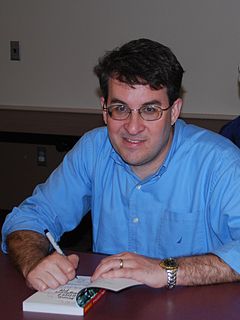A Quote by Albert Einstein
An oligarchy of private capital cannot be effectively checked even by a democratically organized political society because under existing conditions, private capitalists inevitably control, directly or indirectly, the main sources of information.
Related Quotes
Capitalism creates a huge community of producers who are unceasingly striving to deprive each other of the fruits of their collective labor, and an oligarchy that cannot be effectively checked even by a democratically organized society....the subjugation is not by force but because the privileged class has long ago established a system of values by which the people were thenceforth, to a large extent unconsciously, guided in their social behavior.
If you're going to lead a space frontier, it has to be government; it'll never be private enterprise. Because the space frontier is dangerous, and it's expensive, and it has unquantified risks. And under those conditions, you cannot establish a capital-market evaluation of that enterprise. You can't get investors.
Pollution and overuse of resources stem directly from the failure of government to defend private property. If property rights were to be defended adequately, we would find that here, as in other areas of our economy and society, private enterprise and modern technology would come not as a curse to mankind but as its salvation.
It is also true that the less possible it becomes for a man to acquire a new fortune, the more must the existing fortunes appear as privileges for which there is no justification. Policy is then certain to aim at taking these fortunes out of private hands, either by the slow process of heavy taxation of inheritance or by the quicker one of outright confiscation. A system based on private property and control of the means of production presupposes that such property and control can be acquired by any successful man.
Personalization is everywhere. We are constantly asked, directly or indirectly, to create Our Own Whatever - containing and limited to our 'favorite sources of information.' Republicans do that; Democrats do it; environmentalists do it; terrorists do it; science fiction enthusiasts do it. That's a real problem, I think.
Even revolution, which transforms a concrete situation of oppression by establishing the process of liberation, must confront this phenomenon. Many of the oppressed who directly or indirectly participate in revolution intend - conditioned by the myths of the old order - to make it their private revolution. The shadow of their former oppressor is still cast over them.
[T]here are, at bottom, basically two ways to order social affairs, Coercively, through the mechanisms of the state - what we can call political society. And voluntarily, through the private interaction of individuals and associations - what we can call civil society. ... In a civil society, you make the decision. In a political society, someone else does. ... Civil society is based on reason, eloquence, and persuasion, which is to say voluntarism. Political society, on the other hand, is based on force.

































